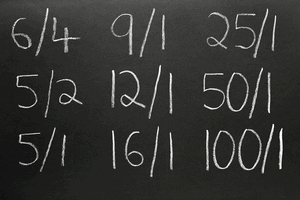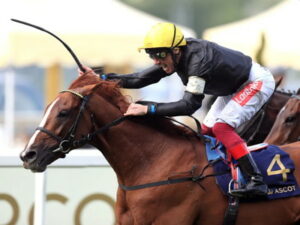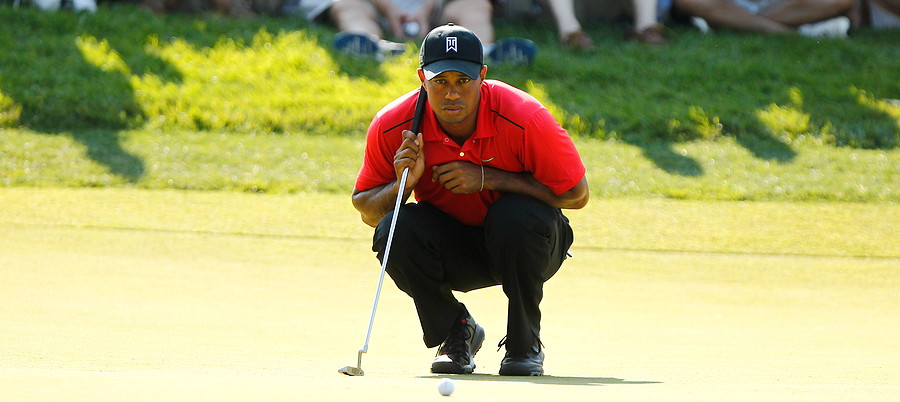 It is important not to assume that every professional sports athlete or team will pay attention to betting markets – be that regularly or even occasionally. Whether someone checks betting odds directly relevant to themselves can depend on many things – from preparation for a match or event to plain curiosity.
It is important not to assume that every professional sports athlete or team will pay attention to betting markets – be that regularly or even occasionally. Whether someone checks betting odds directly relevant to themselves can depend on many things – from preparation for a match or event to plain curiosity.
That being said, even without checking the odds on an event professional sportspeople and teams will usually have some level of awareness of whether they are slight favourites, heavy favourites, possible underdogs or complete and utter outsiders, or whether they’re involved in an even matchup.
Also, betting (and therefore odds) is more central to some sports than others, and as such the degree to which odds can influence a performance will naturally vary with the extent to which odds are pertinent to the sport in question.
It is quite important to stress that for anyone involved with professional sports there are some very strict regulations on sports betting, which inevitably results in a large portion of athletes and management completely avoiding betting – and as such they would likely not be aware of the odds of any one particular event which they are directly involved in. They will, however, have a very good insight as to what their chances are from a sporting perspective – as outlined above.
An extreme of where betting is the heart-blood of a sport is horse racing. Major betting companies are monumental stakeholders in the sport, and more than anything it would be literally impossible to watch a professional horse race without hearing a reference to what the odds on the race are.
Compare this with athletics however, and you could watch dozens of events in succession and it would be normal to not hear a single reference to what the odds of a particular athlete to win an event were.
Are outsiders spurred on by being written off with long odds? Are favourites overcome by the pressure to always win? It is an important question when betting. This article will explore the potential influences which odds may have on performance in sport – whether the sport be individual or team-based. The article will study a range of examples which display various instances of hot favourites winning as expected and underdogs executing an astonishing win, to seemingly unbeatable favourites flopping to an embarrassing loss and rank outsiders failing to perform as is expected.
How Odds are Calculated
 Before getting into how and why odds can affect a performance in sports, it is very important first and foremost to set some context and explain what odds are and how they are calculated.
Before getting into how and why odds can affect a performance in sports, it is very important first and foremost to set some context and explain what odds are and how they are calculated.
Betting odds are all about maths – plain and simple. The mathematical concept of odds is related to (yet distinct from) the concept of probability. In the simplest terms possible, odds are a way of expressing the relationship between the number of favourable outcomes in a given situation versus the number of unfavourable outcomes.
When it comes to sports, bookmakers take an enormous amount of factors into account when calculating odds. These include, but are not limited to: recent performances, head to head record, the likely line-up (if it is a team sport), any recent injury concerns, home advantage and even weather / ground conditions can play a big part in determining what odds are available on any given sporting event.
To sum up the purpose of calculating odds, the idea is to provide a reflection of the probability of any given outcome in a sporting event. However, as outlined, this reflection is purely statistical in its basis. Bookmaker odds are also rarely a true reflection of the real probabilities as they themselves build profit margins in, this does however apply to all of the prices so when looking at a specific market the odds give you a good idea of overall probability of one result vs other outcomes.
What Odds do and do Not Account For
 Because of the way they are calculated, odds take into account a very wide range of statistical information to give an indication of what the chances are of any particular outcome in a sporting event. It would be very, very difficult to out-research bookmakers with regards to performance-related statistics of either an individual competitor or a sports team. After all, bookmakers have professional odds traders who’s job it is to price markets who are supported by sophisticated software and algorithms, plus access to a lot of data punters cannot get easily.
Because of the way they are calculated, odds take into account a very wide range of statistical information to give an indication of what the chances are of any particular outcome in a sporting event. It would be very, very difficult to out-research bookmakers with regards to performance-related statistics of either an individual competitor or a sports team. After all, bookmakers have professional odds traders who’s job it is to price markets who are supported by sophisticated software and algorithms, plus access to a lot of data punters cannot get easily.
What odds don’t account for however, is human error – amongst many other things. This can be from one tiny error by a competitor in an individual sports match which ends up dictating the outcome, to an astronomical mistake made by one momentary lapse of concentration by an individual in a team sport – say for example a goalkeeper letting in a goal which they would save 99.9% of the time.
Odds also can’t account for many human behaviours on a match day – such as how motivated an individual is feeling towards a match, whether they are considering attempting something new strategically, or are completely off the boil for no particular reason.
These factors can have an influence on the chances of a particular outcome of a sporting event, however they will not be factored into the calculation of odds because they will not be public knowledge.
How Might Odds Affect Results?
 A competitor may see that their odds of winning have drifted out and this may demoralise them or it may spur them on. Likewise a favourite may see their odds getting shorter and feel more pressure as a result, or that may actually help them. The point being that while there are many factors that influence the odds it is possible in some cases that the odds themselves could influence the competitor and therefore the result, however, how it would affect a specific professional would require an intimate personal knowledge of that person.
A competitor may see that their odds of winning have drifted out and this may demoralise them or it may spur them on. Likewise a favourite may see their odds getting shorter and feel more pressure as a result, or that may actually help them. The point being that while there are many factors that influence the odds it is possible in some cases that the odds themselves could influence the competitor and therefore the result, however, how it would affect a specific professional would require an intimate personal knowledge of that person.
Naturally these affects will be bigger for individual sports compared to team sports, where one person can have a bigger affect on the result. That is not exclusive though, let’s take an example where a top football player is subject to transfer rumours and their odds of being sold are shortening, this could certainly affect their on field performance (and possibly the performance of other team mates who are friends) and therefore the outcome. Likewise a manger facing the sack could be affected by the odds getting lower, which can have an obvious affect on the game and the players in the team.
While it can be argued that professional sports people pay little attention to bookies odds the media certainly do not. It is common to read stories about odds lengthening or shortening, especially with regards to transfers and sackings as mentioned above. Professionals may not be able to avoid talk in the press with regards to their odds and so there is always a chance that prices could have an influence on an outcome.
The problem for punters it this is very hard to actually quantify. Although if you believe you understand a competitors personal motivations you may be able to glean how they may react to talk of their odds and therefore how that could affect an outcome.
Hot Favourites
Let’s explore cases of sporting entities who were very short favourites and as a result, what happened.
Stradivarius (Horse Racing)
 Stradivarius is one of horse racing’s icons in recent years. Often referred to as ‘the Champion stayer’, he has built a relationship with Frankie Dettori (one of the most successful flat jockeys of all time) in his racing career and is a horse who rarely starts a race at odds longer than evens.
Stradivarius is one of horse racing’s icons in recent years. Often referred to as ‘the Champion stayer’, he has built a relationship with Frankie Dettori (one of the most successful flat jockeys of all time) in his racing career and is a horse who rarely starts a race at odds longer than evens.
Stradivarius has a fantastic temperament with regards to staying calm under pressure and on big occasions, as does Frankie Dettori.
One of the best examples of Stradivarius being a hot favourite to win a race was the Magners Rose Doncaster Cup race at Doncaster in September 2019. Stradivarius went off as 1/9 favourite. These odds indicated that it was unthinkable to punters that the horse would lose this race, and as such a lot of expectation is heaped onto the jockey’s shoulders to perform.
In this race Stradivarius broke well from the stalls and uncharacteristically took an early lead – this is a horse which tends to sit in midfield throughout a race and take things easy, with jockeys relying on his formidable stamina to outpace opposition horses in the final stretch of a race.
Dettori took control of the situation, however, and quite quickly settled Stradivarius down and was content to position him in the middle of the field, giving the horse something to follow.
There was a serious pace in this race with a mile left to go of the 2 mile 2 furlong trip – this is far from a sprinting distance and horses often don’t make a turn of pace until the last couple of furlongs, so the pressure was piled on Frankie Dettori to keep Stradivarius in touch with the leaders quite a distance away from the finish line.
Nevertheless, Dettori kept calm and composed and did not ask more of the horse than he needed to – he clearly knew what Stradivarius’ strengths were (i.e. stamina and the ability to stay the trip) and as such he had confidence in the horse’s ability to stick to the plan of waiting until the final couple of furlongs before turning up the heat pace-wise.
This was exactly what Dettori did – even though with two furlongs left to travel it looked like rival horse Cleonte (under Oisin Murphy) could cause a huge upset at a price of 16/1. Dettori stuck to the plan and pushed Stradivarius into action two furlongs from the finish, and the turn of foot and sheer pace which the horse displayed to sail past Cleonte and win made him look like a true 1/9 favourite.
This is a perfect sporting example of an overwhelming favourite keeping calm and composed under pressure, knowing that he (Dettori) was odds on favourite to win for a reason, and that all he had to do was execute his game plan in order to triumph.
Underdogs
Let’s take a look at some of the more incredible cases in sport where those with long odds caused some of the biggest upsets in recent years.
Leicester City 2015/16 (Football)

Perhaps the most astonishing sporting feat of all time when it comes to genuine shock factor. At the start of the 2015/16 Barclays Premier League season, Leicester City were 5000/1 to win the league.
The previous season, 2014/15, was the club’s first season in the top flight of English football for 10 years prior to that. They ended up finishing 14th, avoiding relegation by a mere six points.
Over the summer Leicester brought in fresh blood management-wise, opting for the experience of Claudio Ranieri, who had previously managed European giants such as Inter Milan, Roma, Valencia, Chelsea and Atletico Madrid.
While Ranieri won the Premier League in his stint as Chelsea manager, nobody realistically considered the possibility that he would achieve this feat with Leicester – and certainly not in his first season in charge of a club which was nearly relegated the season before… perhaps with the exception of a handful of die-hard Leicester City fans who made the life-changing decision to put a few pounds on them to win the league, as they reportedly had done every season beforehand.
Moving onto how the odds of Leicester winning the league could have influenced the performance of the squad over the course of the season, and indeed the final standings of the league itself. The context in previous paragraphs should sufficiently explain that Leicester were rank outsiders for win purposes, and in fact were candidates for relegation going into the 2015/16 season.
To put into perspective just how slim Leicester’s chances of success were in this particular season, the following table shows what the odds of each team winning the title were shortly before the season got underway:
| Team | Odds for title win | Odds for relegation |
|---|---|---|
| Arsenal | 4/1 | 5,000/1 |
| Aston Villa | 5,000/1 | 3/1 |
| Bournemouth | 7,500/1 | 7/5 |
| Chelsea | 15/8 | 7,500/1 |
| Crystal Palace | 3,000/1 | 8/1 |
| Everton | 350/1 | 50/1 |
| Leicester | 5,000/1 | 3/1 |
| Liverpool | 28/1 | 500/1 |
| Manchester City | 3/1 | 7,500/1 |
| Manchester United | 11/2 | 4,000/1 |
| Newcastle United | 5,000/1 | 11/2 |
| Newcastle United | 5,000/1 | 11/2 |
| Norwich City | 7,500/1 | 5/4 |
| Stoke City | 3,000/1 | 14/1 |
| Southampton | 300/1 | 50/1 |
| Sunderland | 5,000/1 | 9/4 |
| Swansea | 3,000/1 | 11/1 |
| Tottenham Hotspur | 150/1 | 250/1 |
| Watford | 10,000/1 | 4/5 |
| West Bromwich Albion | 5,000/1 | 5/1 |
| West Ham United | 3,000/1 | 7/1 |
Source: theweek.co.uk
The table above gives you a detailed insight as to which teams were favourites to win the league in 2015/16, and where Leicester’s chances ranked amongst other teams in the league.
Similarly, the odds on each team getting relegated show that Leicester were expecting to be in a relegation dogfight from day one – only Bournemouth, Norwich, Sunderland and Watford had a shorter price on being relegated than Leicester did prior to the start of the season. Also, according to the odds, Leicester were roughly 1,666 times more likely to be relegated than they were to win the league.
With a host of new players brought into the club over the course of 2015 (At least nine players including Mark Schwarzer, Robert Huth, Christian Fuchs, Yohan Benalouane, Ben Chilwell, N’Golo Kante, Gokhan Inler, Andrej Kramaric and Shinzi Okazaki) and a new manager in Claudio Ranieri – whose reputation at this point was far from being a specialist miracle worker with relegation-threatened teams – people did not know what to expect from this new-look Leicester outfit, and this often isn’t cause for optimism in football. Overhauls of squads – especially when there is a new manager too – tend to lead to painful woe rather than winning titles.
While the odds of Leicester winning the league were 5000/1, it’s important to break this figure down and discuss what is involved in a Premier League campaign and how Leicester went about this season in particular with regards to their approach to football.
How did Leicester Cause Such an Upset?
 Leicester played a new brand of football in this campaign – it was an energetic, free flowing brand of football which moved the ball around the pitch quickly when in possession.
Leicester played a new brand of football in this campaign – it was an energetic, free flowing brand of football which moved the ball around the pitch quickly when in possession.
In defence, everyone on the pitch, including the forwards, would get back to defend set pieces and the team would burst out from defence in a lightning counter attack.
This required a lot of daring, as well as speed and coordination, and most of all belief in their own ability. This was not a style of football which Premier League minnows were supposed to be playing.
Because of this, there were a handful of teams which the odds suggested Leicester could beat – and the management at Leicester will have been aware of this, if not from a betting perspective then definitely from a sporting perspective.
The teams which Leicester would have been fairly confident to beat at the start of the season are as follows: Aston Villa, Swansea, Watford, Sunderland, Newcastle, Bournemouth, West Brom and Stoke.
Having said this, Leicester were still far from heavy favourites to beat these teams – take for example their victory at home vs Aston Villa on 13th September 2015. Leicester were 4/5 favourites to win this game, which is just short of even odds. They won the game 3-2.
They knew that while they were favourites to win the game, their position in the league was not cemented and they were up against exactly the kind of team they needed to beat if they were going to retain their Premier League status at the end of the season.
Similarly, Leicester capitalised on teams they came up against who felt they were odds-on to be the ones beating Leicester. Take for example the game against Chelsea on 14th December, which while Leicester had the home advantage still left them at odds of 5/2 (Chelsea were 1/1 to win away from home, therefore making them favourites) and it must be stated that Chelsea were reigning Premier League champions at this point.
Leicester faced a tough task if they were to take any points away from this fixture and they knew it. Having gone back and watched the highlights of this game, Leicester played with a level of bravery, fearlessness and creativity which would lead you to believe that they in fact were the ones who were reigning champions, if you did not know any better. Leicester knew they were underdogs in this fight and as a result they had a license to play with freedom, because there was no expectation on them to beat the champions.
Leicester ended up winning the league at 5000/1 odds, a price which the league has never been won at before and never will be again – mainly because the bookmakers have stopped offering odds of this length on any team to win the league, such was the shock of Leicester claiming the crown.
The final standings in the 2015/16 Premier League were as follows:
| Position | Team | Played | Win | Draw | Loss | Points |
|---|---|---|---|---|---|---|
| 1st | Leicester City | 38 | 23 | 12 | 3 | 81 |
| 2nd | Arsenal | 38 | 20 | 11 | 7 | 71 |
| 3rd | Tottenham | 38 | 19 | 13 | 6 | 70 |
| 4th | Man. City | 38 | 19 | 9 | 10 | 66 |
| 5th | Man. Utd | 38 | 19 | 9 | 10 | 66 |
| 6th | Southampton | 38 | 18 | 9 | 11 | 63 |
| 7th | West Ham | 38 | 16 | 14 | 8 | 62 |
| 8th | Liverpool | 38 | 16 | 12 | 10 | 60 |
| 9th | Stoke | 38 | 14 | 9 | 15 | 51 |
| 10th | Chelsea | 38 | 12 | 14 | 12 | 50 |
| 11th | Everton | 38 | 11 | 14 | 13 | 47 |
| 12th | Swansea | 38 | 12 | 11 | 15 | 47 |
| 13th | Watford | 38 | 12 | 9 | 17 | 45 |
| 14th | West Brom | 38 | 10 | 13 | 15 | 43 |
| 15th | Crystal Palace | 38 | 11 | 9 | 18 | 42 |
| 16th | Bouremouth | 38 | 11 | 9 | 18 | 42 |
| 17th | Sunderland | 38 | 9 | 12 | 17 | 39 |
| 18th | Newcastle | 38 | 9 | 10 | 19 | 37 |
| 19th | Norwich | 38 | 9 | 7 | 22 | 34 |
| 20th | Aston Villa | 38 | 3 | 8 | 27 | 17 |
Along the way Leicester beat mammoth teams such as Tottenham Hotspur, Liverpool and Manchester City. All season long they played with a flair which could only come from the fact that the footballing world had no expectations of Leicester to do anything special, and because of this the odds which Leicester were to win the league at the very least played a part in unlocking the ability of the squad to deliver one of the greatest triumphs in sporting history.
Leicester were very much aware of their odds throughout the season and I think it can be argued here that the odds themselves spurred them on, allowing them to remain as underdogs until very late in the season taking away the expectation and pressure and allowing them to focus on their football. The hard part of course is predicting it before it happens, but those who were savvy may have at least been able to jump onto Leicester while they still had very good odds even when they were top of the league.
Aston Villa 2020 (Football)
 Similarly to the Leicester example, Aston Villa can offer an instance where they were severe underdogs but defied the odds to produce a memorable and historic performance. On the 4th October 2020 Aston Villa beat reigning Premier League champions Liverpool 7-2.
Similarly to the Leicester example, Aston Villa can offer an instance where they were severe underdogs but defied the odds to produce a memorable and historic performance. On the 4th October 2020 Aston Villa beat reigning Premier League champions Liverpool 7-2.
Despite the fact that Liverpool were missing their first choice goalkeeper Alisson Becker, and star forward Sadio Mane, the champions were still 2/5 to win, and accordingly Aston Villa were 11/2 to win.
The prospect of Liverpool going down by 5 goals to a team which should have been relegated in the 2019/20 season were unthinkable, let alone 7-2. Villa only avoided relegation in 2019/20 because of an incredibly unique malfunction in goal line technology in their match against Sheffield United, which earned Villa a point they shouldn’t have received. Had they not received this point, they would have been relegated and Bournemouth would have remained in the Premier League instead.
As a result, it is fair to say that Aston Villa entered the current Premier League season as relegation contenders and had something to prove to their counterparts in the league that they were worthy of their spot.
So when they hosted Liverpool at Villa Park they knew exactly what they were up against. They were conscious of the fact that they were lucky to still be in the Premier League, and they were facing one of the best teams across Europe in recent years. They had nothing to lose, despite what their odds said.
Possible Reasons for Aston Villa’s Big Win
 Villa started the game pressing high, looking to force errors from Liverpool as they knew they could not afford to sit back and let Liverpool play their football. An uncharacteristic error from Liverpool keeper Adrian resulted in an easy Villa goal early in the game.
Villa started the game pressing high, looking to force errors from Liverpool as they knew they could not afford to sit back and let Liverpool play their football. An uncharacteristic error from Liverpool keeper Adrian resulted in an easy Villa goal early in the game.
Aston Villa took advantage of their lead and used it to make wide runs, playing incisive passes which were high risk and high reward, and taking on shots at goal which had slim chances of going in.
A daring volley attempt from 25 yards out by John McGinn ended up in the back of the net thanks to a slight deflection and an outrageous attempt by Ross Barkley on his weak foot from 25 yards out which deflected off a Liverpool player as the ball found its way into the goal are both examples of Villa taking risks on the field which they may not have done against a lesser opponent.
Add to this the following week’s fixture for Aston Villa, which just so happened to be against former Premier League champions Leicester City. Aston Villa, even though they were coming off the back of beating star-studded Liverpool 7-2, were still going at odds of 2/1 to win.
Having said that, it can be argued that 2/1 was a relatively short price for a team that is still quite new to the Premier League to beat former champions who achieved a top four finish last season – the same team that beat a formidable Manchester City side 5-2 only a couple of weeks prior.
Similar to the victory over Liverpool, Aston Villa played with flair and creativity against Leicester, and this will have at least partly been down to the fact that they knew Leicester were a better team on paper with a better Premier League record recently. This allowed Villa to throw caution to the wind and play with freedom, daring to move the ball quickly and play risky passes into space in order to try and break up the Leicester defence.
With the game going into the dying minutes with injury time, the scores still locked at 0-0, Aston Villa broke away out of their defence with an attacking play built on moving the ball very quickly and with freedom. Ross Barkley received the ball at his feet in the middle of the Leicester half, and with a quick turn and dribble he launched a speculative shot from 30 yards out which rocketed into the bottom left hand corner.
Barkley was able to take this shot on because of the game situation – the odds on Villa winning the game were dying by the second, and with each second that passed the need for a magical moment grew exponentially. Barkley would certainly have been aware of the limited time remaining in the game and the fact that the score was 0-0… after all, these details are lit up on big screens inside the stadium. He was aware that the odds were stacked against his side, so the slim chances of a win in this situation paved the way for a fantastic piece of quick football and bravado from Villa’s new playmaker, as though there was nothing to lose.
This is another example of a team being aware of the odds of the matchup, recognising they were underdogs and playing with freedom and energy in order to try and get something out of the fixture.
Tiger Woods’ Tumultuous Turnaround
 Having dominated the world of golf in the late 1990s and for most of the 2000s, Tiger Woods had achieved god-like status in the sport. However in 2011 and 2012, a series of repetitive leg injuries mixed in with a desperately poor run of bad form culminated in a slow but sure decline in Tiger’s places in the rankings.
Having dominated the world of golf in the late 1990s and for most of the 2000s, Tiger Woods had achieved god-like status in the sport. However in 2011 and 2012, a series of repetitive leg injuries mixed in with a desperately poor run of bad form culminated in a slow but sure decline in Tiger’s places in the rankings.
A fantastic start to the 2013 season gave the feeling that the Tiger of old was on his way back, however an elbow injury sustained at The Players Championship resulted in him shooting his worst ever score as a professional golfer of 13 over par. Woods took a prolonged break after this event due to injury, coming back toward the end of the season but failing to make much of an impact.
2014 saw a slow start for Tiger and this was compounded by another injury, which this time was sustained at the Honda Classic, so severe that it caused him to withdraw mid-round, citing back pain. Woods elected to undergo back surgery and missed The Masters for the first time since 1994.
Returning to competitive action in June that year at the Quicken Loans National, Woods looked like a complete ghost of his past, struggling with every element of his game and missing the cut as a result. Woods’ back pain persisted despite the surgery earlier in the year, and he continued to miss cuts.
During 2015 Woods continued to struggle with back pain but also popped a bone out of his wrist when his club hit a tree root. He had back surgery again in September 2015 which ended up ruling him out of the entire 2016 season, the problems were so extensive that Woods underwent surgery yet again in December 2016 and went on to miss the next 15 months of the Tour with yet more surgery occuring along the way.
At this point in time it looked like one of the saddest falls from grace in the sporting world – no matter what Tiger tried, nothing seemed to work for him with regards to recovering from recurrent injuries. At one point he was ranked as low as 1,199th in the world.
Less Pressure Arguably Made a Difference

It was in October 2016 that Woods announced he was pushing his return to action to the December of the same year, and shortly after this announcement was made several bookmakers released a price of 1/9 on Woods to never win any one of the four golf majors again.
This was quite a phenomenal measure of just how far the golfing great had regressed in what was a relatively short time frame, despite the fact that his decline in form and fitness felt like an eternity to golf fans.
Returning to competitive action in 2018, he did not take long to show the world that he was back and he meant business. Tying for second place at the Valspar Championship in March 2018, this was Tiger’s first top-five finish on the PGA Tour since 2013 and he followed this up with a five-under performance at the Open Championship which landed him tied-sixth place.
On top of this, the 2018 PGA Championship saw Woods finish second with a final-round 64 being the best final-round score in a major in his career, and incidentally this resulted in him climbing back to 26th in the World rankings.
Woods wrapped up the 2018 season in perfect fashion, winning the Tour Championship which was the final event in the calendar. This truly confirmed that the real Tiger was back on the scene – however he still had a long way to go to reach the heights he had done earlier in his career.
Fast forward to April 14th 2019. Tiger Woods walks off the 18th green of Augusta National on 13 under par, winning his fifth Masters tournament and also claiming his first major win in 11 years. This was quite simply one of the most magical moments in sport – almost nobody has ever been such a trailblazer to a sport as Tiger has, to then go on and hit such a low with constantly debilitating injuries keeping him away from the competitive game, to then come back and win the most coveted title in the game.
Tiger Woods was able to do this because he has been a fighter all the way through his career. Throughout his struggles with injury he knew the odds were stacked against him even returning to competitive action, let alone winning golf’s most famous tournament. He was quoted in 2015 as saying that his game was “unacceptable” but that he was “committed to getting back to the pinnacle of my game… I do expect to be playing very soon”.
Somebody of Tiger’s nature has a natural instinct to fight when up against a stiff task, and as such knowing that the chances of a prosperous return to golf were quite slim at times would have only served to motivate him further and as such it can be seen that the odds on him never winning another major will have contributed to his determination to recover and indeed win the 2019 Masters.
What Can We Take From This?
 To conclude, it can most definitely be said that odds tend to influence sporting events from time to time.
To conclude, it can most definitely be said that odds tend to influence sporting events from time to time.
While not every outcome in sport is determined by the betting markets, there are certain examples as outlined in which a player or team knowing they are either hot favourites or complete underdogs has served to give them license to execute a particular plan which has resulted in success.
There are many more examples which can be drawn upon, but the ones used here are some of the most unique and magical events which are incredibly unlikely to be repeated again.
But, as the purpose of the article suggests, perhaps it could be the case that the fact that it is very unlikely for something of this magnitude to occur any time soon, will in turn inspire a player or team to go on and achieve an unthinkable feat… only time will tell.